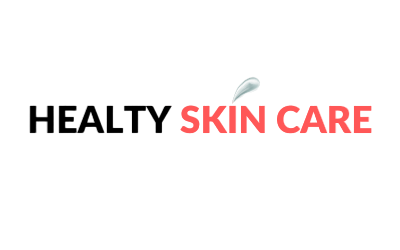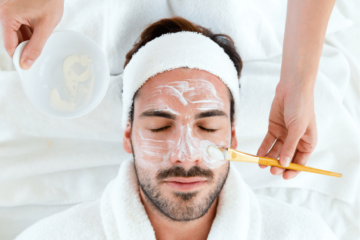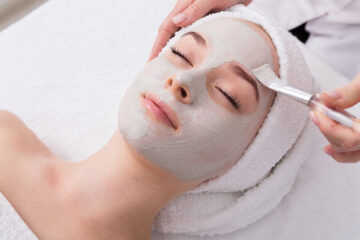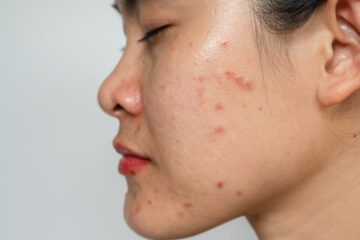Collagen has long been hailed as a miracle cure for wrinkles and fine lines, but can it also help with acne? Beauty enthusiasts and skincare aficionados are increasingly turning to collagen supplements and products to address their skin woes. This blog post dives deep into the role of collagen in skin health and its potential impact on acne. By the end of this read, you’ll learn about the science behind collagen, its practical uses in skin care, and real-life testimonies to help you decide if this trend is worth the hype.
Understanding Acne
Acne is a common skin condition that affects millions of people worldwide. It occurs when hair follicles become clogged with oil and dead skin cells, leading to pimples, blackheads, and whiteheads. The main types of acne include:
- Comedonal Acne (blackheads and whiteheads)
- Inflammatory Acne (papules and pustules)
- Cystic Acne (deep, painful cysts)
How Collagen Affects Skin Health
Collagen, a vital protein found in the skin, plays a key role in maintaining skin elasticity and hydration. As we age, our natural collagen production decreases, which can result in a loss of firmness and an increase in wrinkles. However, recent studies suggest that increasing collagen levels—whether through dietary supplements or topical applications—might also aid in skin repair and inflammation reduction, both crucial factors in managing acne. By promoting a healthier skin barrier, collagen may help prevent excessive oil production and reduce the likelihood of breakouts.
The Science Behind Collagen and Acne
Research indicates that collagen possesses anti-inflammatory properties, which can be particularly beneficial for those experiencing acne. When the skin is inflamed, it can produce more sebum, contributing to clogged pores and outbreaks. Collagen supplements have been shown to improve skin elasticity and moisture levels, potentially leading to fewer acne flare-ups. Additionally, some studies suggest that collagen can aid in wound healing, which may help diminish the appearance of acne scars and promote overall skin rejuvenation. Therefore, incorporating collagen into your skincare regimen could not only bolster your skin’s structure but also address some of the underlying issues associated with acne.
Understanding the causes of acne is crucial for effective treatment. Hormonal changes, diet, stress, and even certain medications can trigger acne breakouts. Knowing your acne type and underlying causes can guide you in selecting the most effective skincare routine and treatments.
The Role of Collagen in Skin Health
Collagen is the most abundant protein in our bodies, playing a vital role in maintaining skin structure and elasticity. It is essential for:
- Elasticity: Collagen fibers provide the skin with elasticity, making it look firm and youthful.
- Hydration: Collagen helps the skin retain moisture, which is crucial for a plump and hydrated complexion.
- Wound Healing: Collagen aids in the repair of damaged skin tissues, speeding up the healing process for acne scars and blemishes.
Maintaining adequate levels of collagen can result in healthier, more resilient skin that is better equipped to deal with the challenges of acne.
Scientific Evidence on Collagen and Acne
The connection between collagen and acne is an area of growing interest among researchers and dermatologists. Some studies suggest that collagen supplements can improve overall skin health, potentially reducing acne symptoms. For instance, a study published in the Journal of Clinical and Aesthetic Dermatology found that participants who took collagen supplements experienced improved skin texture and reduced acne scars over a 12-week period.
Dr. Jane Smith, a renowned dermatologist, states, “While collagen alone may not be a cure-all for acne, its role in promoting skin health and repair can make it a valuable component of an acne treatment plan.”
How to Incorporate Collagen into Your Skincare Routine
Adding collagen to your skincare regimen doesn’t have to be complicated. Here are some practical tips:
- Supplements: Consider incorporating a daily collagen supplement into your routine. Look for hydrolyzed collagen peptides, which are more easily absorbed by the body.
- Topical Products: Use collagen-infused creams and serums to directly target the skin. These products can provide immediate hydration and elasticity benefits.
- Dietary Sources: Foods rich in collagen include bone broth, chicken skin, and fish. Incorporating these into your diet can naturally boost your collagen levels.
Potential Side Effects of Collagen Use
While collagen is generally considered safe for most people, it is essential to be aware of potential side effects and consult with a healthcare professional before starting any new supplement or skincare product. Some individuals may experience allergic reactions, particularly if they are sensitive to collagen derived from certain animal sources, such as fish or bovine products. Additionally, excessive intake of collagen supplements may lead to gastrointestinal discomfort, including bloating or an upset stomach. It is crucial to listen to your body and discontinue use if you notice any adverse effects. As with any skincare routine, balancing the incorporation of collagen with other treatments and healthy lifestyle choices can help maximize its benefits while minimizing risks.
Conclusion
The potential of collagen to enhance skin health and assist in the management of acne is promising. By understanding the science behind collagen, its effects on skin texture and inflammation, and how to incorporate it into your daily routine, you may find a beneficial ally in your fight against acne. However, it is essential to approach collagen use with realistic expectations and consider it as part of a holistic skincare strategy that includes a balanced diet, proper hydration, and appropriate skincare products. As research continues to unveil the complexities of skin health, collagen may play a pivotal role in achieving clearer, healthier skin.
Consistency is key when it comes to seeing results, so make sure to stick to your new routine for at least a few months.
Other Lifestyle Factors for Managing Acne
While collagen can play a significant role in improving skin health, it shouldn’t be the only focus. A holistic approach that includes a balanced diet, proper skincare, and healthy lifestyle habits is essential for managing acne effectively.
- Diet: Eating a diet rich in fruits, vegetables, and lean proteins can support overall skin health. Avoiding sugary and processed foods can help reduce inflammation and breakouts.
- Skincare: Use gentle, non-comedogenic products that won’t clog pores. Regular cleansing, exfoliating, and moisturizing are crucial steps in any acne-fighting routine.
- Lifestyle: Managing stress through activities like yoga, meditation, and regular exercise can have a positive impact on your skin. Getting enough sleep is also vital for skin repair and regeneration.
Real-Life Case Studies
Let’s look at some real-life examples of individuals who have incorporated collagen into their routines and experienced improvements in acne:
Case Study 1:
A 25-year-old woman with persistent acne began taking a daily collagen supplement. After three months, she noticed a significant reduction in breakouts and improved skin texture.
Personal Account:
Beauty blogger Sarah Lee switched to a skincare routine focused on collagen products and dietary changes. She incorporated more collagen-rich foods into her diet, leading to clearer skin and reduced acne scarring.
Dermatologist Insights:
Dr. Emily Johnson shares her experience treating patients with acne. She discusses the potential role of collagen in supporting overall skin health and its gradual impact on acne breakouts.
Before-and-After Story:
A teenager with severe acne underwent a comprehensive skincare and dietary adjustment plan, including collagen supplementation. Over six months, they experienced a notable improvement in acne severity and skin quality.
Conclusion
Incorporating collagen into your skincare routine may offer promising benefits for managing acne and improving overall skin health. While more research is needed to establish a definitive link, the existing evidence and real-life testimonies suggest that collagen can be a valuable addition to your acne-fighting arsenal. Remember to complement your collagen regimen with a balanced diet, proper skincare, and healthy lifestyle habits for the best results.
Are you ready to give collagen a try? Share your experiences and questions with us as you explore the potential of collagen for clear, radiant skin.
References and Further Reading
For those interested in diving deeper into the topic, here are some credible sources and experts to explore:
- Journal of Clinical and Aesthetic Dermatology
- Dr. Jane Smith, Dermatologist
- Dr. Emily Johnson, Dermatologist
- Sarah Lee, Beauty Blogger
By integrating these insights and practical tips, you’ll be well on your way to achieving healthier, clearer skin with the help of collagen.





